- Home
- Fredric Brown
The Shaggy Dog and Other Murders
The Shaggy Dog and Other Murders Read online
the shaggy dog and other murders
by
FREDRIC BROWN
Copyright, ©, 1963 by Fredric Brown All rights reserved. Printed in the U.S.A
First Edition
No part of this book may be reproduced in any form without permission in writing from the publisher, except by a reviewer who wishes to quote brief passages in con-nection with a review written
for inclusion in a magazine, newspaper or broadcast.
The Shaggy Dog Murders: Copyright, ©, 1944 by Popular Publi-cations, Inc., published as To
Slay a Man about a Dog. Life and Fire: Copyright, ©, 1941 by Frank A. Munsey Co. Teacup
Trouble: Copyright, ©, 1940 by Frank A. Munsey Co., published as Trouble in a Teacup.
Good Night, Good Knight: Copyright, ©, 1949 by New Publications, Inc., published as Last Curtain,
Beware of the Dog: Copyright, ©, 1943 by Ace Magazines, Inc., published as Hound of Hell. Little
Boy Lost: Copyright, ©, 1941 by Frank A. Munsey Co. Whistler's Murder: Copyright, ©, 1940 by
Street and Smith Publi-cations, Inc. Satan One-and-a-Half Copyright, ©, 1942 by Popular
Publications, Inc. Tell 'Em, Pagliaccio!: Copyright, ©, 1943 by Street and Smith Publications, Inc.Nothing Sinister: Copyright, ©, 1942 by Street and Smith Publications, Inc.
Published simultaneously in Canada by Clarke, Irwin & Company Limited, Toronto and
Vancouver
Library of Congress Catalog Card Number: 63-9856
THE SHAGGY DOG AND OTHER MURDERS
The Shaggy Dog Murders
Peter Kidd should have suspected the shaggy dog of something, right away. He got into trouble the first time he saw the animal. It was the first hour of the first day of Peter Kidd's debut as a private investigator. Specifically, ten minutes after nine in the morning.
It had taken will power on the part of Peter Kidd to make himself show up a dignified ten minutes late at his own office that morning instead of displaying an unprofes-sional overenthusiasm by getting there an hour early. By now, he knew, the decorative secretary he had engaged would have the office open. He could make his entrance with quiet and decorum.
The meeting with the dog occurred in the downstairs hallway of the Wheeler Building, halfway between the street door and the elevator. It was entirely the fault of the shaggy dog, who tried to pass to Peter Kidd's right, while the man who held the dog's leash—a chubby little man with a bulbous red nose—tried to walk to the left. It didn't work.
"Sorry," said the man with the leash, as Peter Kidd stood still, then tried to step over the leash. That didn't work, either, because the dog jumped up to try to lick Peter Kidd's ear, raising the leash too high to be straddled, even by Peter's long legs.
Peter raised a hand to rescue his shell-rimmed glasses, in imminent danger of being knocked off by the shaggy dog's display of affection.
"Perhaps," he said to the man with the leash, "you had better circumambulate me."
"Huh?"
"Walk around me, I mean," said Peter. "From the Latin, you know. Circum, around—ambulare, to walk. Parallel to circumnavigate, which means to sail around. From ambu-lare also comes the word ambulance— although an ambu-lance has nothing to do with walking. But that is because it came through the French hôpital ambulant, which ac-tually means—"
"Sorry," said the man with the leash. He had already circumambulated Peter Kidd, having started the pro-cedure even before the meaning of the word had been ex-plained to him.
"Quite all right," said Peter.
"Down, Rover," said the man with the leash. Regret-fully, the shaggy dog desisted in its efforts to reach Peter's ear and permitted him to move on to the elevator.
"Morning, Mr. Kidd," said the elevator operator, with the deference due a new tenant who has been introduced as a personal friend of the owner of the building.
"Good morning," said Peter. The elevator took him to the fifth, and top floor. The door clanged shut behind him and he walked with firm stride to the office door where-upon—with chaste circumspection—golden letters spelled out:
PETER KIDD PRIVATE INVESTIGATIONS
He opened the door and went in. Everything in the office looked shiny new, including the blonde stenographer be-hind the typewriter desk. She said, "Good morning, Mr. Kidd. Did you forget the letterheads you were going to pick up on the floor below?"
He shook his head. "Thought I'd look in first to see if there were any—ah—"
"Clients? Yes, there were two. But they didn't wait. They'll be back in fifteen or twenty minutes."
Peter Kidd's eyebrows lifted above the rims of his glasses. "Two? Already?"
"Yes. One was a pudgy-looking little man. Wouldn't leave his name."
"And the other?" asked Peter.
"A big shaggy dog," said the blonde. "I got his name, though. It's Rover. The man called him that. He tried to kiss me."
"Eh?" said Peter Kidd.
"The dog, not the man. The man said 'Down, Rover,' so that's how I know his name. The dog's, not the man's."
Peter looked at her reprovingly. He said, "I'll be back in five minutes," and went down the stairs to the floor below. The door of the Henderson Printery was open, and he walked in and stopped in surprise just inside the doorway. The pudgy man and the shaggy dog were standing at the counter. The man was talking to Mr. Henderson, the proprietor.
"—will be all right," he was saying. "I'll pick them up Wednesday afternoon, then. And the price is two-fifty?" He took a wallet from his pocket and opened it. There seemed to be about a dozen bills in it. He put one on the counter. "Afraid I have nothing smaller than a ten." "Quite all right, Mr. Asbury," said Henderson, taking change from the register. "Your cards will be ready for you."
Meanwhile, Peter walked to the counter also, a safe distance from the shaggy dog. From the opposite side of the barrier Peter was approached by a female employee of Mr. Henderson. She smiled at him and said, "Your order is ready. I'll get it for you."
She went to the back room and Peter edged along the counter, read, upside down, the name and address written on the order blank lying there: Robert Asbury, 633 Kenmore Street. The telephone number was BEacon 3-3434. The man and the dog, without noticing Peter Kidd this time, went on their way out of the door.
Henderson said, "Hullo, Mr. Kidd. The girl taking care of you?"
Peter nodded, and the girl came from the back room with his package. A sample letterhead was pasted on the outside. He looked at it and said, "Nice work. Thanks."
Back upstairs, Peter found the pudgy man sitting in the waiting room, still holding the shaggy dog's leash.
The blonde said, "Mr. Kidd, this is Mr. Smith, the gentleman who wishes to see you. And Rover."
The shaggy dog ran to the end of the leash, and Peter Kidd patted its head and allowed it to lick his hand. He said, Glad to know you, Mr.—ah—Smith?'
"Aloysius Smith," said the little man. "I have a case I'd like you to handle for me."
"Come into my private office, then, please, Mr. Smith. Ah—you don t mind if my secretary takes notes of our conversation?"
"Not at all," said Mr. Smith, trolling along at the end of the leash alter the dog, which was following Peter Kidd into the inner office. Everyone but the shaggy dog took chairs.
The shaggy dog tried to climb up onto the desk, but was dissuaded.
"I understand," said Mr. Smith, "that private detectives always ask a retainer. I—" He took the wallet from his pocket and began to take ten-dollar bills out of it. He took out ten of them and put them on the desk. "I—I hope a hundred dollars will be sufficient."
"Ample," said Peter Kidd. "What is it you wish me to do?"
The little man smiled deprecatingly. He said, "I'm not exactly sure. But I'm scared. Somebody has tried to kill me—twice. I want you to find the owner of this dog. I can't just let it go, because it follows me now. I suppose I could—ah—take it to the pound or something, but maybe these people would keep on trying to kill me. And anyway, I'm curious."
Peter Kidd took a deep breath. He said, "So am I. Can you put it a bit more succinctly?"
"Huh?"
"Succinctly," said Peter Kidd patiently, "comes from the Latin word, succinctus, which is the past participle of succingere, the literal meaning of which is to gird up—but in this sense, it—"
"I knew I'd seen you before," said the pudgy man. "You're the circumabulate guy. I didn't get a good look at you then, but—"
"Circumambulate," corrected Peter Kidd.
The blonde quit drawing pothooks and looked from one to another of them. "What was that word?" she asked.
Peter Kidd grinned. "Never mind, Miss Latham. I'll explain later. Ah—Mr. Smith, I take it you are referring to the dog which is now with you. When and where did you ac-quire it—and how?"
"Yesterday, early afternoon. I found it on Vine Street near Eighth. It looked and acted lost and hungry. I took it home with me. Or rather, it followed me home once I'd spoken to it. It wasn't until I'd fed it at home that I found the note tied to its collar."
"You have that note with you?"
Mr. Smith grimaced. "Unfortunately, I threw it into the stove. It sounded so utterly silly, but I was afraid my wife would find it and get some ridiculous notion. You know how women are. It was just a little poem, and I remember every word of it. It was—uh—kind of silly, but—"
"What was it?"
The pudgy man cleared his throat. "It went like this:
I am the dog Of a murdered man.
Escape his fate, Sir,
If you can."
"Alexander Pope," said Peter Kidd.
"Eh? Oh, you mean Pope, the poet. You mean that's something of his?" "A parody on a bit of doggerel Alexander Pope wrote about two hundred years ago, to be engraved on the collar of the King's favorite dog. Ah—if I recall rightly, it was:
I am the dog
Of the King at Kew.
Pray tell me, Sir,
Whose dog are you?"
The little man nodded. "I'd never heard it, but— Yes, it would be a parody all right. The original's clever. 'Whose dog are you?" He chuckled, then sobered abruptly. "I thought my verse was funny, too, but last night—"
"Yes?"
"Somebody tried to kill me, twice. At least, I think so. I took a walk downtown, leaving the dog home, inciden-tally, and when I was crossing the street only a few blocks from home, an auto tried to hit me."
"Sure it wasn't accidental?"
"Well, the car actually swerved out of its way to get me, when I was only a step off the curb. I was able to jump back, by a split second and the car's tires actually scraped the curb where I'd been standing. There was no other traffic, no reason for the car to swerve, except—"
"Could you identify the car? Did you get the number?"
"I was too startled. It was going too fast. By the time I got a look at it, it was almost a block
away. All I know is that it was a sedan, dark blue or black. I don't even know how many people were in it, if there was more than one. Of course, it might have been just a drunken driver. I thought so until, on my way home, somebody took a shot at me.
"I was walking past the mouth of a dark alley. I heard a noise and turned just in time to see the flash of the gun, about twenty or thirty yards down the alley. I don't know by how much the bullet missed me—but it did. I ran the rest of the way home."
"Couldn't have been a backfire?"
"Absolutely not. The flash was at shoulder level above the ground, for one thing. Besides— No, I'm sure it was a shot."
"There have never been any other attempts on your life, before this? You have no enemies?"
"No, to both questions, Mr. Kidd."
Peter Kidd interlocked his long fingers and looked at him. "And just what do you want me to do?"
"Find out where the dog came from and take him back there. To—uh—take the dog off my hands meanwhile. To find what it's all about."
Peter Kidd nodded. "Very well, Mr. Smith. You gave my secretary your address and phone number?"
"My address, yes. But please don't call me or write me. I don't want my wife to know anything about this. She is very nervous, you know. I'd rather drop in after a few days lo see you for a report. If you find it impossible to keep the dog, you can board it with a veterinary for some length of time."
When the pudgy man had left, the blonde asked, "Shall I transcribe these notes I took, right away?"
Peter Kidd snapped his fingers at the shaggy dog. He said, "Never mind, Miss Latham. Won't need them."
"Aren't yon going to work on the case?"
"I have worked on the case," said Peter. "It's finished."
The blonde's eyes were big as saucers. "You mean—"
"Exactly." said Peter Kidd. He rubbed the backs of the shaggy dog's ears and the dog seemed to love it. "Our client's right name is Robert Asbury, of six-thirty-three Kenmore Street, telephone Beacon three, three-four-three-four. He's an actor by profession, and out of work. He did not find the dog, for the dog was given to him by one Sidney Wheeler who |purchased the dog for that very purpose undoubtedly—who also provided the hundred-dollar fee. There's no question of murder."
Peter Kidd tried to look modest, but succeeded only in looking smug. After all, he'd solved his first case—such as it was—without leaving his office.
He was dead right, too, on all counts except one: The shaggy dog murders had hardly started.
The little man with the bulbous nose went home—not to the address he had given Peter Kidd, but to the one he had given the printer to put on the cards he'd had en-graved.
His name, of course, was Robert Asbury and not Aloysius Smith. For all practical purposes, that is, his name was Robert Asbury. He had been born under the name of Herman Gilg. But a long time ago he'd changed it in the interests of euphony the first time he had trodden the boards; 633 Kenmore Street was a theatrical boardinghouse.
Robert Asbury entered, whistling. A little pile of mail on the hall table yielded two bills and a theatrical trade paper for him. He pocketed the bills unopened and was looking at the want ads in the trade paper when the door at the back of the hall opened.
Mr. Asbury closed the magazine hastily, smiled his most winning smile. He said, "Ah, Mrs. Drake."
It was Hatchet-face herself, but she wasn't frowning. Must be in a good mood. Swell! The five-dollar bill he could give her on account would really tide him over. He took it from his wallet with a flourish.
"Permit me," he said, "to make a slight payment on last week's room and board, Mrs. Drake. Within a few days I shall-"
"Yes, yes," she interrupted. "Same old story, Mr. Asbury, but maybe this time it's true even if you don't know it yet. Gentleman here to see you, and says it's about a role."
"Here? You mean he's waiting in the—?"
"No, I had the parlor all tore up, cleaning. I told him he could wait in your room."
He bowed. "Thank you, Mrs. Drake." He managed to walk, not run, to the stairway, and start the ascent with dignity. But who the devil would call to see him about a role? There were dozens of producers any one of whom might phone him, but it couldn't be a producer calling in person. More likely some friend telling him where there was a spot he could try out for.
Even that would be a break. He'd felt it in his bones that having all that money in his wallet this morning had meant luck. A hundred and ten dollars! True, only ten of it was his own, and Lord, how it had hurt to hand out that hundred! But the ten meant five for his landlady and two and a half for the cards he absolutely had to have—you can't send in your card to producers and agents unless you have cards to send in—and cigarette money for the balance. Funny job that
was. The length some people will go to play a practical joke. But it was just a joke and nothing crooked, because this Sidney Wheeler was supposed to be a right guy, and after all, he owned that office building and a couple of others; probably a hundred bucks was like a dime to him. Maybe he'd want a follow-up on the hoax, another call at this Kidd's office. That would be another easy ten bucks.
Funny guy, that Peter Kidd. Sure didn't look like a detective; looked more like a college professor. But a good detective ought to be part actor and not look like a shamus. This Kidd sure talked the part, too. Circum—am— Circumambulate, and—uh—succinctly. "Perhaps you had better circumambulate me succinctly." Goofy! And that "from the Latin" stuff!
The door of his room was an inch ajar, and Mr. Asbury pushed it open, started through the doorway. Then he tried to stop and back out again.
There was a man sitting in the chair facing the doorway and only a few feet from it—the opening door had just cleared the man's knees. Mr. Asbury didn't know the man, didn't want to know him. He disliked the man's face at sight and disliked still more the fact that the man held a pistol with a long silencer on the barrel. The muzzle was aimed toward Mr. Asbury's third vest button.
Mr. Asbury tried to stop too fast. He stumbled, which, under the circumstances, was particularly unfortunate. He threw out his hands to save himself. It must have looked to the man in the chair as though Mr. Asbury was attack-ing him, making a diving grab for the gun.
The man pulled the trigger.
" 'I am the dog of a murdered man,'" said the blonde. " 'Escape his fate, Sir, if you can.'" She looked up from her shorthand notebook. "I don't get it."
Peter Kidd smiled and looked at the shaggy dog, which had gone to sleep in the comfortable warmth of a patch of sunlight under the window.
"Purely a hoax," said Peter Kidd. "I had a hunch Sid Wheeler would try to pull something of the sort. The hundred dollars is what makes me certain. That's the amount Sid thinks he owes me."
"Thinks he owes you?"

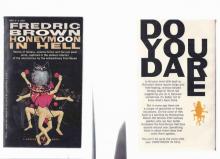 Hall of Mirrors
Hall of Mirrors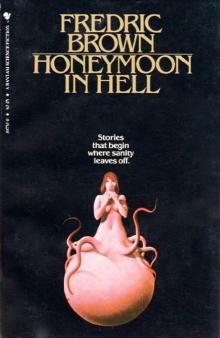 Honeymoon in Hell
Honeymoon in Hell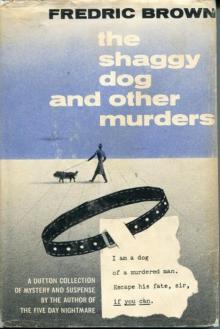 The Shaggy Dog and Other Murders
The Shaggy Dog and Other Murders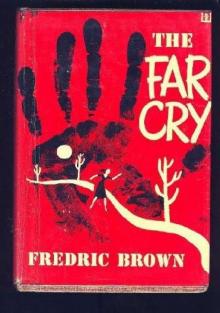 The Far Cry
The Far Cry Arena
Arena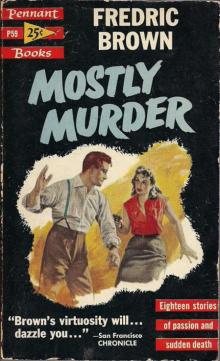 Mostly Murder
Mostly Murder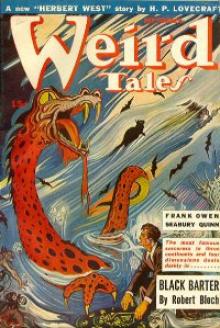 The Geezenstacks
The Geezenstacks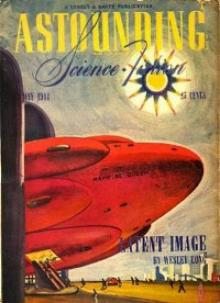 The Yehudi Principle
The Yehudi Principle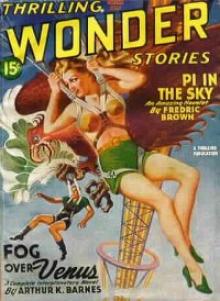 Pi in the Sky
Pi in the Sky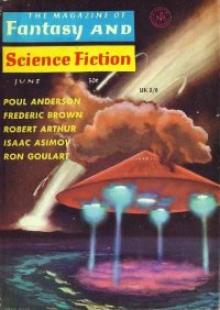 Eine Kleine Nachtmusik
Eine Kleine Nachtmusik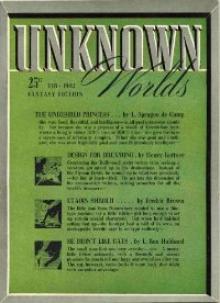 Etaoin Shrdlu
Etaoin Shrdlu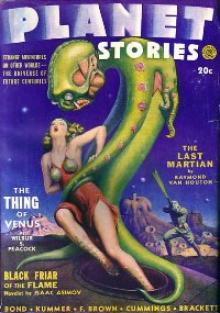 The Star Mouse
The Star Mouse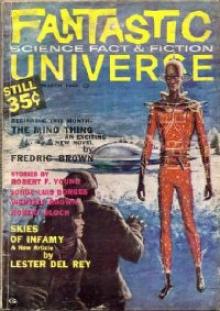 The Mind Thing
The Mind Thing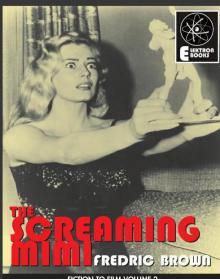 The Screaming Mimi
The Screaming Mimi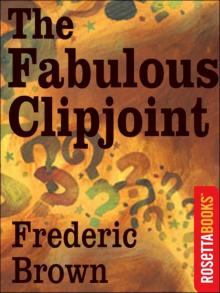 The Fabulous Clipjoint
The Fabulous Clipjoint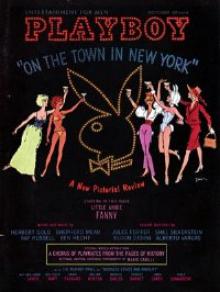 Puppet Show
Puppet Show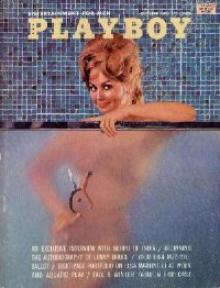 It Didn't Happen
It Didn't Happen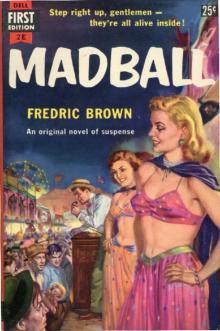 Madball
Madball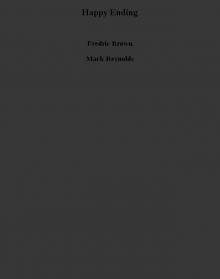 Happy Ending
Happy Ending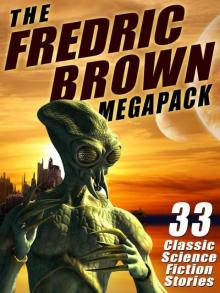 The Fredric Brown Megapack: 33 Classic Science Fiction Stories
The Fredric Brown Megapack: 33 Classic Science Fiction Stories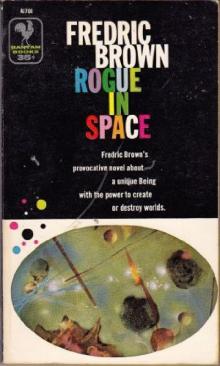 Rogue in Space
Rogue in Space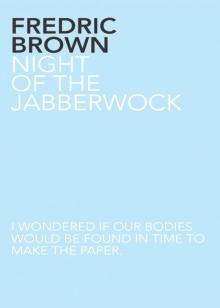 Night of the Jabberwock
Night of the Jabberwock The Dead Ringer
The Dead Ringer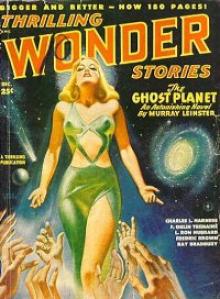 Knock
Knock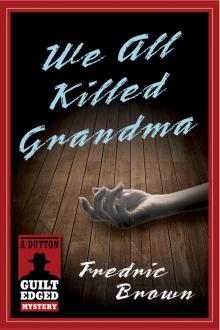 We All Killed Grandma
We All Killed Grandma Space On My Hands
Space On My Hands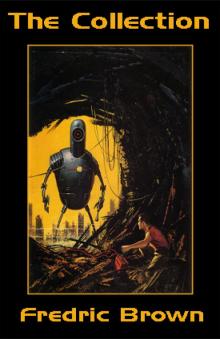 The Collection
The Collection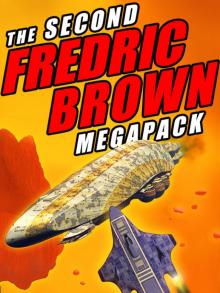 The Second Fredric Brown Megapack: 27 Classic Science Fiction Stories
The Second Fredric Brown Megapack: 27 Classic Science Fiction Stories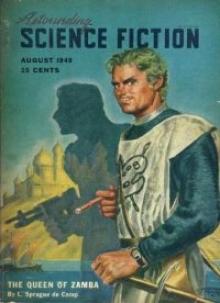 Letter to a Phoenix
Letter to a Phoenix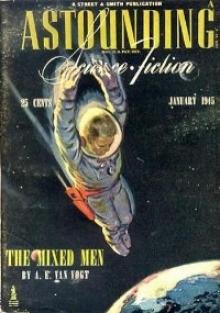 The Waveries
The Waveries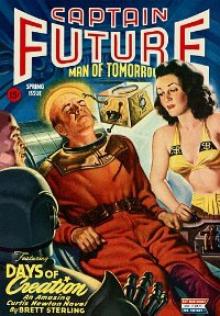 Nothing Sirius
Nothing Sirius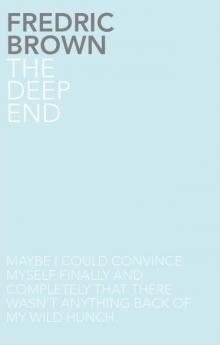 The Deep End
The Deep End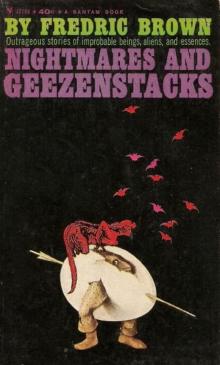 Nightmares & Geezenstacks
Nightmares & Geezenstacks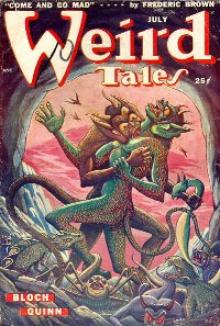 Come and Go Mad
Come and Go Mad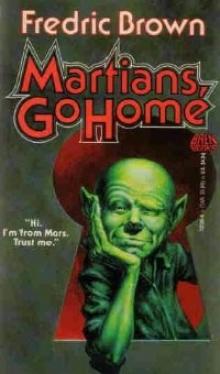 Martians, Go Home
Martians, Go Home